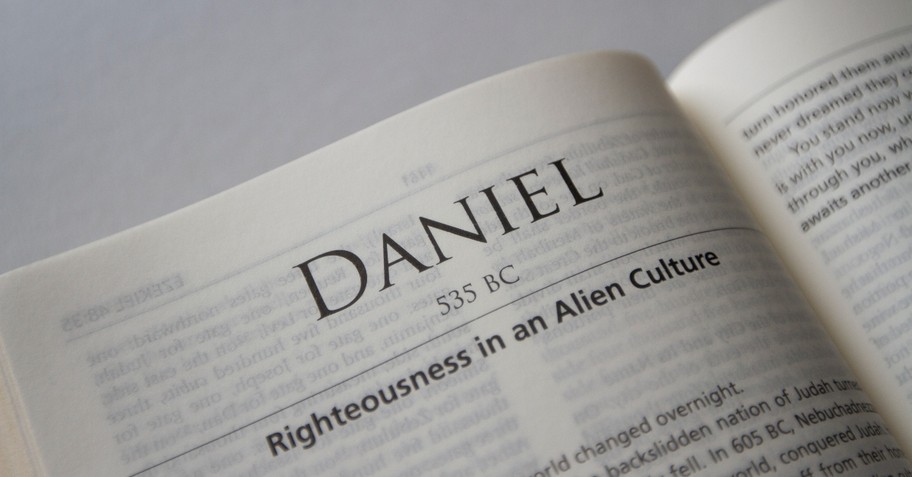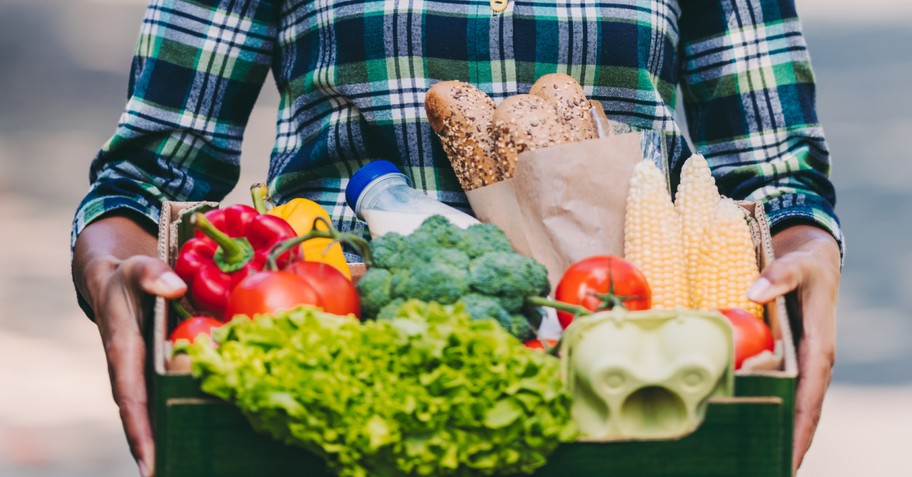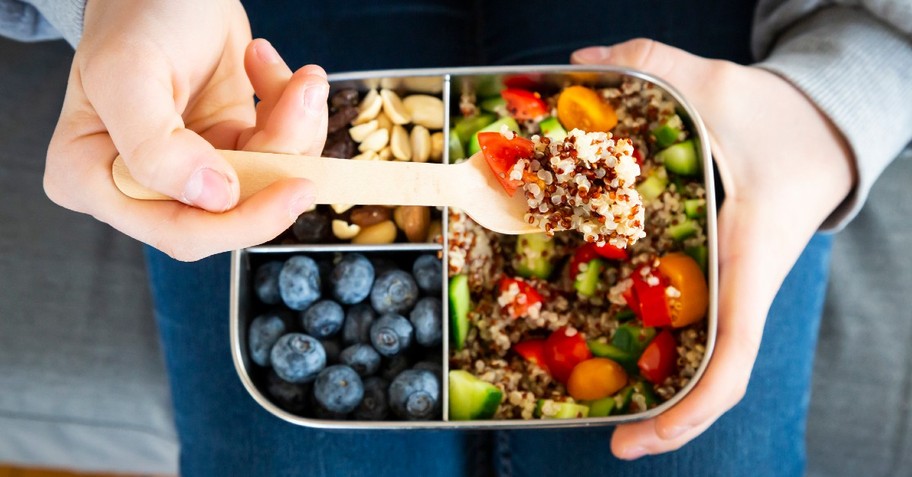Fasting safely and appropriately is one of the ways the Bible encourages believers to connect with and grow closer to God. It increases dependence on the power of the Spirit, and proves that man does not live on bread alone.
There is now some evidence in the modern world that certain kinds of fasts or diets can be physically healthy, and not just spiritually strengthening. One kind of fast with Biblical roots that has become more popular in recent years - the Daniel Fast - is one based on the actions of the prophet Daniel.
Trying to maintain God’s laws and his identity as a Jew, Daniel ate cleanly for a period of time in order to show that the God of Israel’s ways was better than the decadent and indulgent ways of the Babylonians.
Photo credit: ©Getty Images/Povozniuk

Daniel Fast in the Bible
The book of Daniel tells the story of the Israelites carried off into exile after many years of straying from God’s ways, but mostly from the perspective of a handful of individuals. It also contains prophecy.
Daniel was one of the youths selected to be educated in the ways of the Babylonian court, the center of the Chaldean empire. He learned literature, another language, court etiquette, and many other skills that would make him useful to Nebuchadnezzar. Daniel’s diet first comes up in chapter one of the account of his life:
“But Daniel resolved that he would not defile himself with the king’s food, or with the wine that he drank. Therefore he asked the chief of the eunuchs to allow him not to defile himself” (Daniel 1:8).
Centuries before, God instituted rules for which foods were clean and unclean for Hebrews to eat, which the Chaldeans did not know or obey.
There are two important factors that went into Daniel’s request to eat differently than everyone else in his cohort. First and foremost, he wanted to continue to obey the Lord’s commands. Throughout the course of the book of Daniel, his dedication to the Lord is clear. He prays even under threat of death. He boldly interprets prophecy under the guidance of the Spirit of God, knowing it could anger the king.
Keeping his diet was part of being obedient to God. It was also important because it was a part of maintaining his identity as an Israelite. Being chosen for service in the court of Nebuchadnezzar cost the Hebrew men a great deal, even their own names. The Bible records, “And the chief of the eunuchs gave them names: Daniel he called Belteshazzar, Hananiah he called Shadrach, Mishael he called Meschach, and Azariah he called Abednego” (Daniel 1:7). They were no longer in their homes, had to learn a new language, lived as well-dressed and well-fed prisoners, but they had to go by new names. Daniel clung to his identity and his God, in part by eating cleanly.
Photo credit: ©SparrowStock

What Is the Daniel Fast?
The Daniel Fast is a religiously inspired dietary plan based on the biblical story of Daniel, particularly the book of Daniel in the Old Testament. The fast is often undertaken by individuals or groups as a form of spiritual discipline, prayer, and seeking God's guidance.
The Daniel Fast typically involves abstaining from certain types of foods for a specified period, often 21 days. The guidelines for the fast are derived from the Bible, specifically Daniel 1:8-14, where Daniel and his friends chose to abstain from rich and luxurious foods and only ate vegetables and drank water. The idea is to focus on simple, plant-based foods and eliminate certain indulgences from the diet.
The chief eunuch had compassion for Daniel and his request to eat according to his principles, but he had concerns that the king would get mad when Daniel and his friends were less healthy because they were not eating approved food. As a response, Daniel gave a challenge to the Babylonian court. He said: “Test your servants for ten days; let us be given vegetables to eat and water to drink. Then let our appearance and the appearance of the youths who eat the king’s food be observed by you, and deal with your servants according to what you see” (Daniel 1:13-14).
The king’s men still ate meat and wine and were less healthy than Daniel and his friends. Today, believers will sometimes adopt this diet to get healthier and get closer to the Lord, as they often incorporate a fast with it. In the Bible, it lasted for ten days initially, and then it was implemented for a longer period of time.
During the Daniel Fast, participants typically avoid:
Meat and animal products: Including beef, poultry, fish, dairy, and eggs.
Sweeteners: Such as sugar, honey, and artificial sweeteners.
Leavened bread and processed foods: Participants usually stick to whole grains and avoid leavened bread.
Solid fats: Avoid fried foods and choose healthier fat sources like olive oil.
Beverages: Often, participants limit their beverage intake to water and herbal teas.
The emphasis is on consuming fruits, vegetables, legumes, nuts, seeds, and whole grains. The Daniel Fast is not just about dietary restrictions; it also encourages prayer, meditation, and spiritual reflection.
The Daniel fast is a partial fast, meaning it does not require the individual to give up all food for a period of time, though some people will abstain from eating before dinner. It is very strict about what foods can be consumed. The Bible does not go into great detail about what specifically he ate, though it does say Daniel and his friends consumed vegetables and water. The Daniel fast is built around this knowledge, an understanding of Levitical law, and clean foods.
We will dive into my specifics below but if you're ready to start the Daniel Fast, download your FREE printable guide: 21-Day Daniel Fast Prayer and Recipe Guide with daily Scripture, prayers, meal recipes and snack ideas!
Photo credit: ©Getty Images/Martin Dm

Foods You Can Eat for the Daniel Fast
- Vegetables: all fresh, frozen, dried, juiced, and canned vegetables
- Fruit: all fresh, frozen, dried (with no added sugar), juiced and canned fruit
- Whole grains: amaranth, barley, brown rice, buckwheat, bulgur, millet. Freekeh, oats, purple rice, wild rice, whole wheat, spelt, forghum, rye, quinoa
- Beans and legumes: black beans, garbanzo beans, kidney beans, lentils, peanuts, pinto beans, split beans, black-eyed peas
- Oils: coconut, olive, sesame, etc., but not for deep-frying
- Nuts and seeds: almonds, Brazil nuts, cashews, sunflower seeds, soy nuts, sesame seeds, hazelnuts, macadamia nuts, pecans, pumpkin seeds, pine nuts, pistachios, poppy seeds
- Unleavened bread, herbs, spices, and seasonings
- Beverages: water, some fruit juice, unsweetened non-dairy milk
Foods to Avoid for the Daniel Fast
- Alcohol
- Added sugars: any foods with added sugar are prohibited, such as agave, artificial sweeteners, brown sugar, cane juice, corn syrup, honey, sugar, molasses, etc.
- Meat: beef, bison, chicken, goat, lamb, pork, turkey, fish
- Dairy: butter, cheese, cream, milk, yogurt
- Eggs are prohibited
- Yeast: this includes all leavened bread
- Refined grains: white rice, white flour
- Processed food: any food with artificial flavorings, colorings, chemicals, additives, and preservatives are prohibited
- Fried food: corn chips, potato chips, French fries, fried vegetables (tempura) etc.
- Solid fats: butter, lard, margarine, shortening
- Chocolate: milk chocolate, semi-sweet, dark, syrup, cacao
- Caffeinated drinks
Photo credit: ©Getty Images/Westend61

How to Participate in the Daniel Fast
To participate in the Daniel fast, select a period of time to only eat foods approved on the diet. This time can be only ten days, like the initial challenge in the Book of Daniel, or thirty days, or any period of time the Holy Spirit leads. It is possible to eat what is outlined in the diet for three meals a day. Some people feel they should incorporate a period of abstaining from food while only eating foods on the list for specific meals.
Some important Bible verses about fasting:
“And when you fast, do not look gloomy like the hypocrites, for they disfigure their faces that their fasting may be seen by others. Truly, I say to you, they have received their reward. But when you fast, anoint your head and wash your face, that your fasting may not be seen by others but by your Father who is in secret. And your Father who sees in secret will reward you” (Matthew 6:16-18).
“And when they had appointed elders for them in every church, with prayer and fasting they committed them to the Lord in whom they had believed” (Acts 14:23).
“Do not deprive one another, except perhaps by agreement for a limited time, that you may devote yourselves to prayer; but then come together again, so that Satan may not tempt you because of your lack of self-control” (1 Corinthians 7:5).
“But he answered, ‘It is written, ‘Man shall not live by bread alone, but by every word that comes from the mouth of God’” (Matthew 4:4).
“So, whether you eat or drink, or whatever you do, do all to the glory of God” (1 Corinthians 10:31).
Use these Recipes for the Daniel fast to make your meals part of the fast but also delicious!
Photo credit: ©Getty Images/Motortion

A Prayer for Considering a Fast
Holy Father,
Thank you for being ever-present in my life. Thank you for guiding me and bringing me closer to you. Lord, I believe you are calling me to spend time fasting. Help me to decide how to fast and for how long. Reveal to me what I should be praying over, and guide me to the kind of fast that will draw me closer to you. Let me see what Your will is for my life during this period of fasting and prayer. May Your Will be done in my life.
In Jesus’ name I pray,
Amen.
The Daniel Fast can be a good way to start fasting for people who have never tried it before. It is also a Biblically based way to change the way an individual sees food. No matter what reason someone is considering going on a fast, it should always be driven by a desire to glorify God and grow closer to Him.
Sources
Feola, Kristen. The Ultimate Guide to the Daniel Fast. Grand Rapids: Zondervan, 2010.
Gregory, Susan. The Daniel Fast Feed Your Soul, Strengthen Your Spirit, and Renew Your Body. Grand Rapids: Tyndale Momentum, 2017
Stringfellow, Alan. Insights on the Book of Daniel A Verse-by-Verse Study. Pittsburgh: Whitaker House, 2020.
Related articles
How Long Did Jesus' Fast in the Wilderness Last?
What Christians Need to Know about Fasting and Prayer
What Exactly Is Fasting All About?
Related Resource: Cautions to Consider before Fasting, What to Know about Daniel Fasts, Sugar Fasts and and Keeping an Eternal Perspective
It's January so everyone's talking about fasting! Churches are doing corporate fasts, Organizations are running sugar fasts. People have cleared out their pantries of all foods that aren't legal on the Daniel Fast and stocked their fridges with vegetables they'll only ever eat in January. Today, Heather digs into fasting. Is fasting good? Should we be fasting? What is the purpose of fasting? If this episode helps you navigate your body image questions in a helpful way, be sure to subscribe to Compared to Who? at Spotify or Apple Podcasts so you never miss an episode!
Photo credit: ©Getty Images/Anastasiia Stiahailo
Originally published January 10, 2023.







